Alumni Stories
"Now they do” – Nicholas Villiers’ mantra of triumph and resilience
Throughout his life, University of Canberra alumnus Nicholas Villiers was told that his dreams were out of reach. “It’s been said numerous times, people from my background don’t go on to achieve what you have – my proudest moments have been in proving those people wrong,” he says.
When he graduated with a Master of Business Informatics in March this year, Nicholas gave the valedictorian address, saying: “My only answer to that statement is always the same: ‘now they do’. Because until somebody achieves something for the first time, it seems impossible. When someone pushes ahead on their own, when they believe in themselves and others believe in them, when the barriers in their way are broken down, they can make the impossible possible.”
He received a standing ovation.
"Education is the greatest enabler and equaliser"
Growing up in public housing – in one of the most disadvantaged postcodes in eastern Australia, with seven siblings and a single mum with an intellectual disability – Nicholas Villiers was just five when he set his sights on a university education.
“I didn’t even know what it meant, to go to uni – I had just heard my teachers mention it. But we had nothing, and I knew there was no way out of that life without education,” he says.
“Education is the greatest enabler and equaliser there is.”
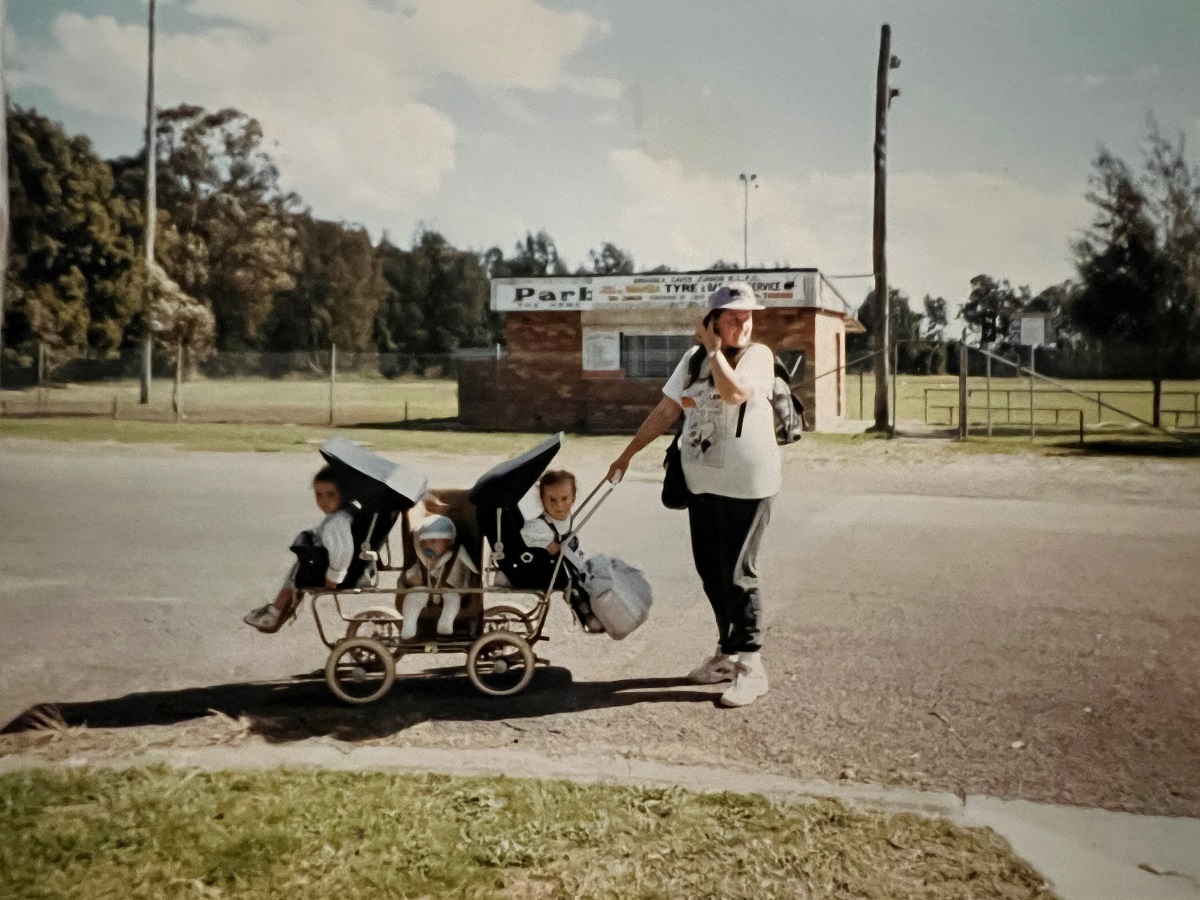
A regular fixture at the local library, Nicholas loved reading non-fiction books – “even the dictionary!” he says.
“In Year 1, the library was retiring its encyclopedia and the librarian asked if I would like to take it home. She put all the volumes in the boot of her car and drove it to my house … and I thought that was the coolest thing ever!”
Nicholas finished reading the encyclopedia in a year, further developing a love of learning and the pursuit of knowledge. “That was when I truly realised that the life I was living was not the usual life for everyone – and I started thinking about how I could make a real difference for myself and others,” he says.
“Mrs Smith, my Year 4 teacher, really invested time and effort in me. There is this program in NSW, under which gifted and high potential Year 5 and 6 students can enrol in ‘opportunity classes’. There would be like 1,000 kids taking the test to get in, and only 15 would make it. Mrs Smith thought I could get in, and she used to print off test sheets for me.
“When the results came in, I was in 16th place – but the week before Christmas, they rang my mum and said someone pulled out, so I got in.”
Nicholas was stoked to get the chance, but he faced discrimination from his peers in the program.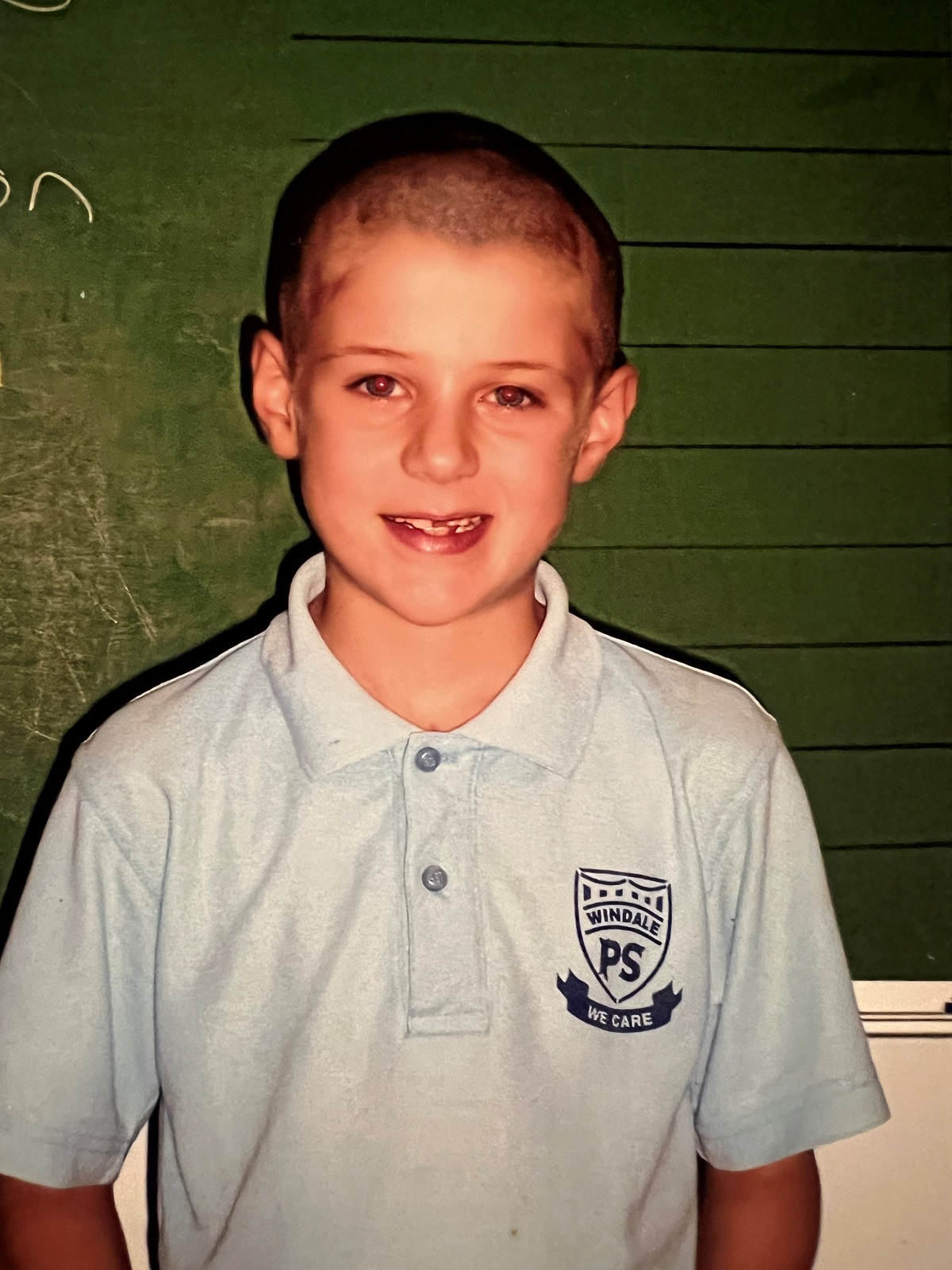
“When I went to my first class and said where I was from, the other kids laughed at me,” Nicholas says.
“They didn’t appreciate that I’d worked really hard to get there – they only saw where I was from. They said that kids from my school didn’t get into this class – and I said, well now they do.”
He was right. Nicholas was the first student from his public school to get into the opportunity classes – and several other students from his school later followed suit.
In Year 10, a breakdown in his family resulted in Nicholas becoming homeless.
He had two more years of secondary school ahead, and while he was keeping his head above water academically, the circumstances meant that Nicholas wasn’t achieving his goals.
“It was a really difficult time, and one of the biggest tests I have faced so far,” he says.
“I didn’t have a roof over my head. The local police put me up in a motel for a week, but the nearest bed under child protection services was in Queensland – I was in private school, and working at a bike shop to pay for my school fees, so obviously I couldn’t go without disrupting my studies.”
He stayed at a youth refuge for seven months, before the owner of the bike shop found out about his situation, and offered Nicholas a place to live with him and his partner.
“They took me in and have been supportive of me ever since – they even came to my graduation at UC. Without them, I wouldn’t even have finished high school,” he says.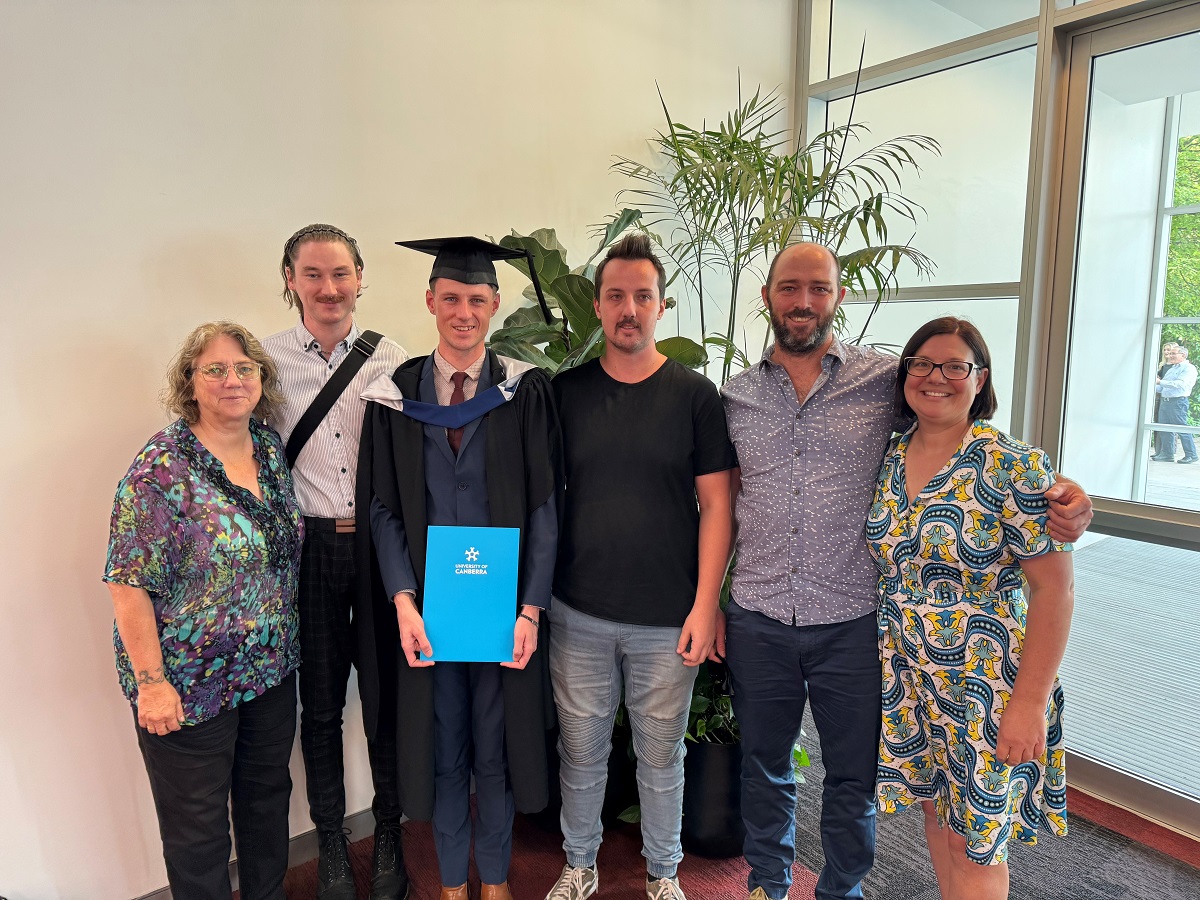
An opportunity … and another daunting hurdle
When Nicholas received his acceptance letter to complete his Bachelor of Information Technology at UC, his dreams were within closer reach than ever before – despite the fact that he moved to the ACT with little more than a couple changes of clothes.
But he had a lot of doubts, and it was a struggle to adjust.
“When I walked into my first ever lecture in 2016, it felt good – but also, so daunting. I felt like I didn’t belong, even though uni had been my goal for so many years. I was first in family to go to uni, and I didn’t know anyone else who had gone, so it all felt very foreign,” he says.
But he soon found himself settling in and made a small circle of good friends. And, he developed a bit of a ritual.
“There used to be this billboard with [former Chancellor] Professor Tom Calma on it, with a quote from him about how education is a vaccine against poverty,” Nicholas says.
“I would go look at it before each exam or assessment.”
Nicholas was also a competitive cyclist at the time, and had been drawn to Canberra in part because of its good cycling culture.
Four weeks into his course, he crashed his bike – badly.
“I was in a coma for 10 days – the hospital called my family because they didn’t think I was going to make it,” Nicholas says.
When he woke up, he was diagnosed with a lifelong traumatic brain injury (TBI) and had to spend several months in hospital.
“There’s a lot of misinformation about TBIs – symptoms are different for everyone,” Nicholas says.
“I can have issues remembering things sometimes, and I get quite tired. I have made a lot of small adjustments to my life – things like writing lists, and having a short nap every evening. Through it all, my partner Jayden has been a great support – we met at uni and have been together for seven years now.”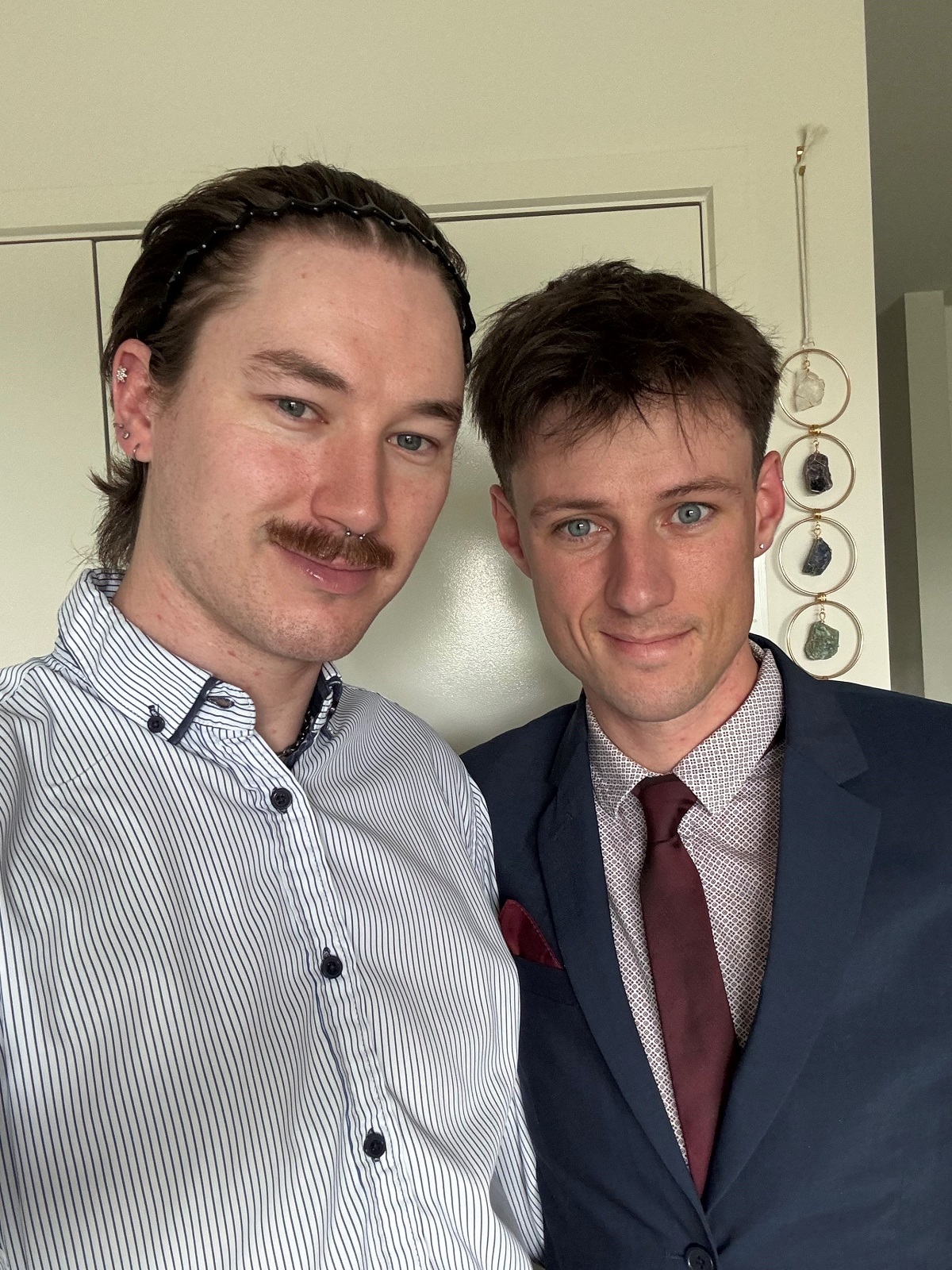
When he was ready to come back to UC, Nicholas reached out to InclusionUC (then the Equity and Participation team) for support.
“They work with student on an individual, needs-based basis – which is great, because it’s not a one-size-fits-all approach,” he says.
“They formulated a Reasonable Adjustment Plan for me, which incorporated various adjustments to help me navigate uni life while dealing with the TBI, like deadline extensions or having 10 minutes extra in exams. I don’t think I would have gotten this kind of support elsewhere.”
Nicholas went on to complete a Graduate Certificate in Government Informatics at UC as soon as he finished his bachelor’s degree – and moved on to his master’s immediately after.
University education as a springboard
Now, a university education is just one of Nicholas’ achievements. He’s most recently worked as the Assistant Director of an Enterprise Architect Team with a large government agency, and has traded places at UC – the former student is now a Co-Lecturer at the Faculty of Science and Technology.
“That moment when you see a student has learnt what you taught them a few weeks ago – that’s a really nice feeling,” he says.
As a member of UC’s School of Information Technology and Systems Course Advisory Board, Nicholas helps to ensure the School’s course offerings are job-relevant and meet workforce needs; he is also a STEM Success Advisor, helping to drive equity.
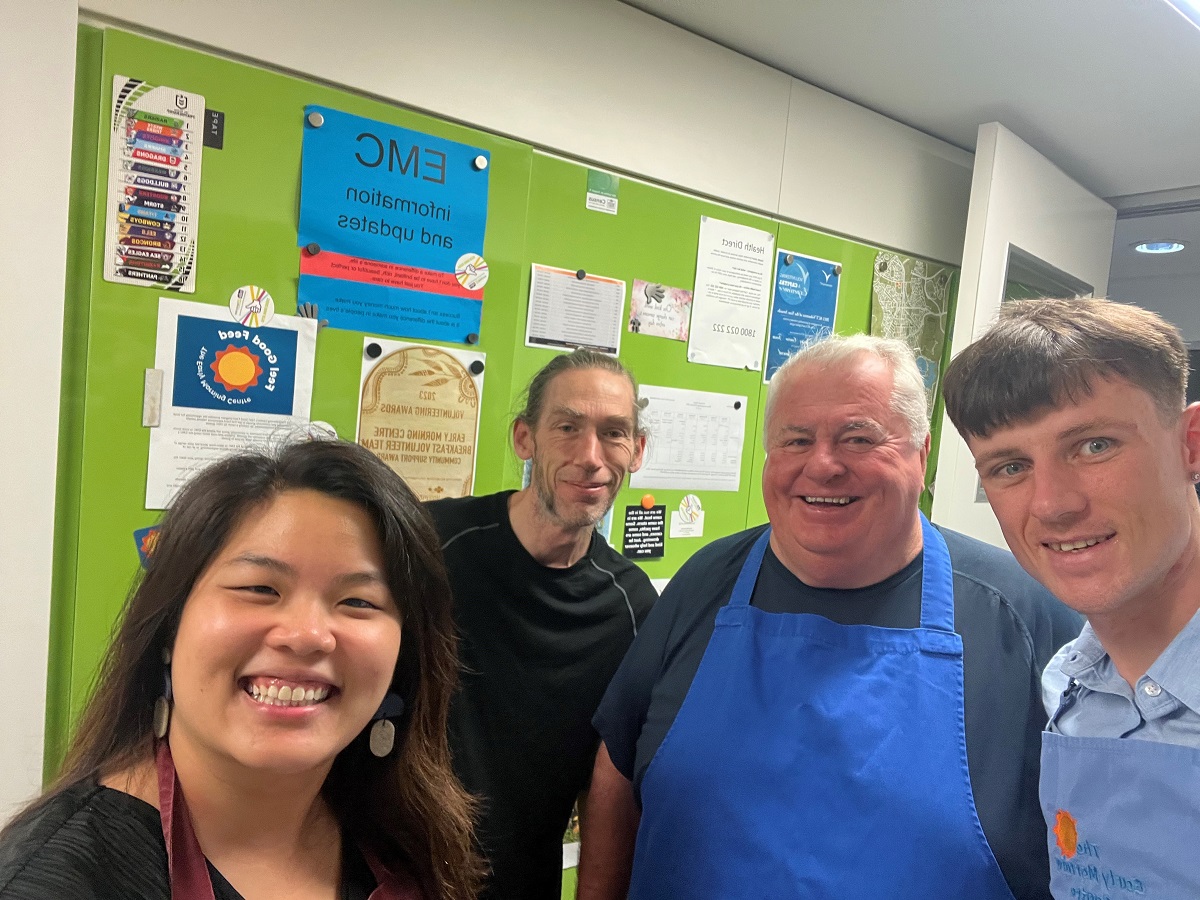
Nicholas has served on the Board of Canberra Homeless Connect for over five years, as well as volunteering with the Early Morning Centre, which seeks to address issues of homelessness.
He also worked on the ACT Youth Advisory Council and as a Youth Consultant with the ACT Youth Assembly.
“I finished up last year, after being on the Council for four years, with two of those as the Co-Chair,” Nicholas says. “We advocated for the age of criminal responsibility to be raised last year from 10 to 12 – and in 2025, it will be raised to 14 – and for the age for out of home care to be raised from 18 to 21.
“One reason that I serve the community is to remind me where I’ve come from, why I’m here and that there are people who still need help.”
Nicholas relied on Youth Allowance for the first few years of his university study, and strongly believes that financial aid can help change lives and drive a positive ripple effect.
“I was quite used to not having much, so I didn't mind living on the breadline for a bit longer, as long as I was making progress towards a better life. Because I know how much of a difference financial aid can make to someone’s life, I have a sponsor child through the Smith Family, whose programs I benefited from as a child.”
“I finally have everything I need … how can I give back”
Nicholas closed his valedictory speech at graduation with questions for his peers: “What things will you achieve for yourself, your community, and our world, where you can say ‘now they do’? What barriers will you break down? What opportunities will you create for others?”
He’s thinking of the very same things himself.
“I’ve been fighting really hard for a long time, and I finally have everything I need – a partner, my own home, a stable job, my education. Most of my childhood, I never had food, shelter and clothing all at the same time – and now, when I look at my life, there is nothing I lack,” he says.
“So I’m taking a year off to figure out what I want my life to be. I have spent so long trying to catch up to everyone else, and now I want to consider how I can give back and help other people more. I don’t need more of what I already have.”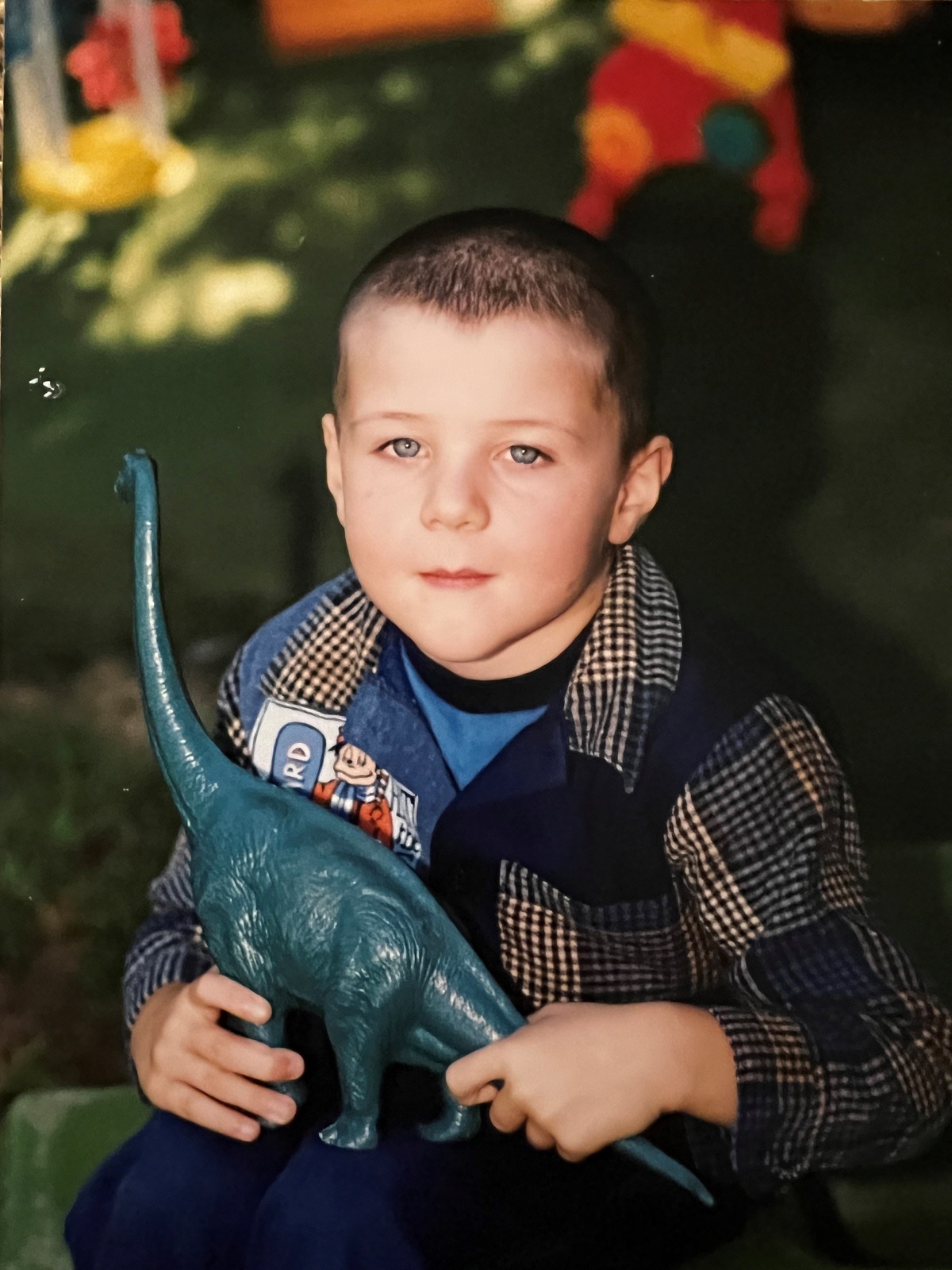
As much as he’s glad to have proven wrong the people who doubted his ability to succeed, it means far more to Nicholas that he has kept the faith of his five-year-old self.
“I know just what I’d tell that kid: You’re stronger than you know. You’ll face a lot of challenges … but you’ll come through. You’ll see how strong you are.”
Words by Suzanne Lazaroo, photos by Liam Budge and supplied.